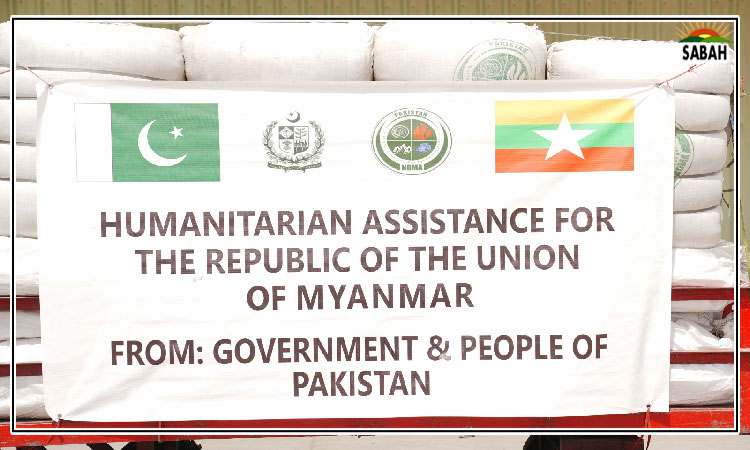This is us۔۔۔Muna Khan
NOT all heroes wear capes, goes the popular catchphrase. In Pakistan, they play the role of judge, jury and executioner. I am speaking about the men who should be villainised but are turned into heroes. That is one of the many tragedies to befall this country.
Mumtaz Qadri was given the death penalty for taking the law into his own hands and assassinating Salmaan Taseer because he thought Punjabs governor had committed blasphemy. But the 100,000 who attended his funeral in 2016 saw him as a hero. As do the many visitors who come to pay their respects to his grave near Islamabad even today.
I was thinking of heroes and how they are (mis)treated while watching Sarmad Khoosats Zindagi Tamasha, the much-maligned and banned film, which the filmmaker ended up releasing on YouTube recently. The film is not about heroes, but Khoosats courage in releasing a film in the face of adversity is pretty heroic. But it is also tragic because there was no other way for him to show people his beautiful film.
Truthfully, I watched the two-hour film wondering which scene/moment led to its banning, despite being cleared for release by the censors. Was this the scene that supporters of the Tehreek-i-Labbaik Pakistan protested over or was it that scene? We are left wondering because the scope of blasphemy allegations is such that anything can cause offence. Plus, the party warned that the films screening could lead to unrest in the country. The government and I mean each one treats its statements as code red and succumbs to its demands.
There was no other way for him to show people his film.
The movie is about a real estate agent who is also a naat khwan; he is loved and recognised for his skill and talent. He lives in Lahore with his bedridden wife while his married daughter works as a producer on a morning TV show. Their life is upended when a video of her father performing a dance to a song for his friends is uploaded on social media (without his knowledge or consent) and goes viral. Once widely respected, he is now shunned by the neighbourhood and wider community.
A lot has been written on how sad it was that this award-winning movie, which was also Pakistans selection for the Oscars in 2021, could not be screened in its own country. Those who opposed its release said in a statement that the characterisation of the naat reader in the film is such that it can cause discomfort to the public and might lead them to deviate from Islam.
The film does cause discomfort because it holds a mirror to society. And it is not a pretty sight. How can anything be rosy when a law has been so weaponised in the name of security that it is now easy to use to silence dissent?
This kind of intimidation, portrayed so well in the movie, is familiar to anyone whos been up against the powerful, be it an individual or an institution. And because the country doesnt have systems in place to protect the vulnerable from harm whether it is the police or the legal system or the community the intimidators win. They always do.
It is unjust to punish artists who want to produce work that goes beyond just mirch masala entertainment. Cinema is a reflection of its society. Messages in movies can be inspiring and they can influence people on positions. The important thing is to let audiences choose what they want to watch in cinema, on news channels, on television. In this case, at least 460,000 people had watched it on YouTube and most of the near 1,300 comments praised the film.
Zindagi Tamasha is a movie to watch not just for its storytelling and performances but for providing an opportunity to reflect on who we are as a people and I dont mean to come off as a grouchy, grim analyst on TV bemoaning all things wrong in the country.
In his message announcing the release of his film on YouTube, Khoosat said that while he followed all the procedures for its release, his film was not treated fairly. In a way, this is true about us too: we are not given a chance to thrive because someone somewhere is robbing us of opportunities to expand our horizons and express ourselves. People were denied a chance to watch this movie in the cinema as a collective, which is what Khoosat wanted. It was meant to be felt by you, received by you, he said in the YouTube message. I would say that this movie is for us; it is about us, by which I mean its not pandering to audiences outside the country.
It takes nerve to release this on YouTube, especially since he will incur losses. That kind of courage makes Khoosat a hero among us.
The writer researches newsroom culture in Pakistan.
Twitter: @LedeingLady
Courtesy Dawn, August 13th, 2023












